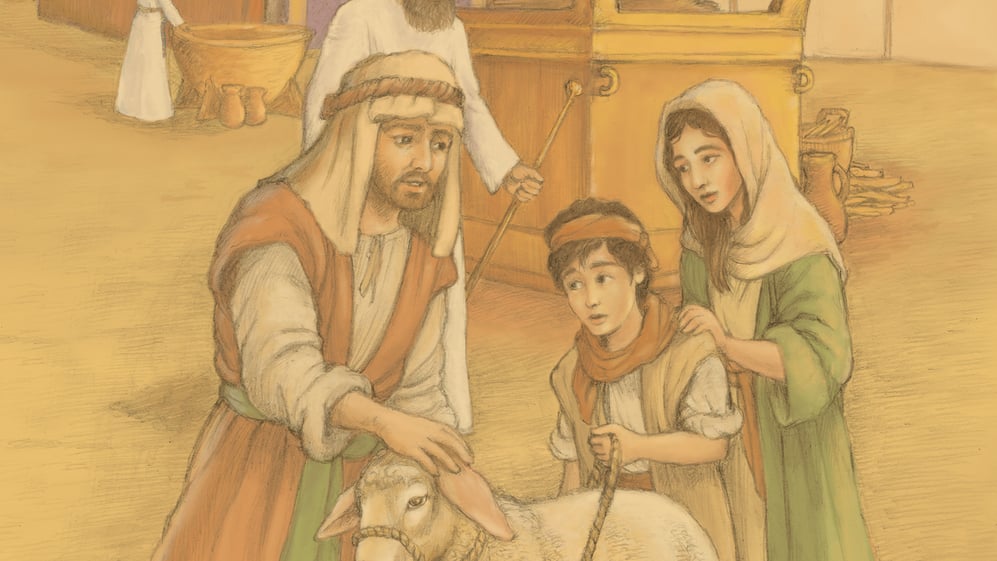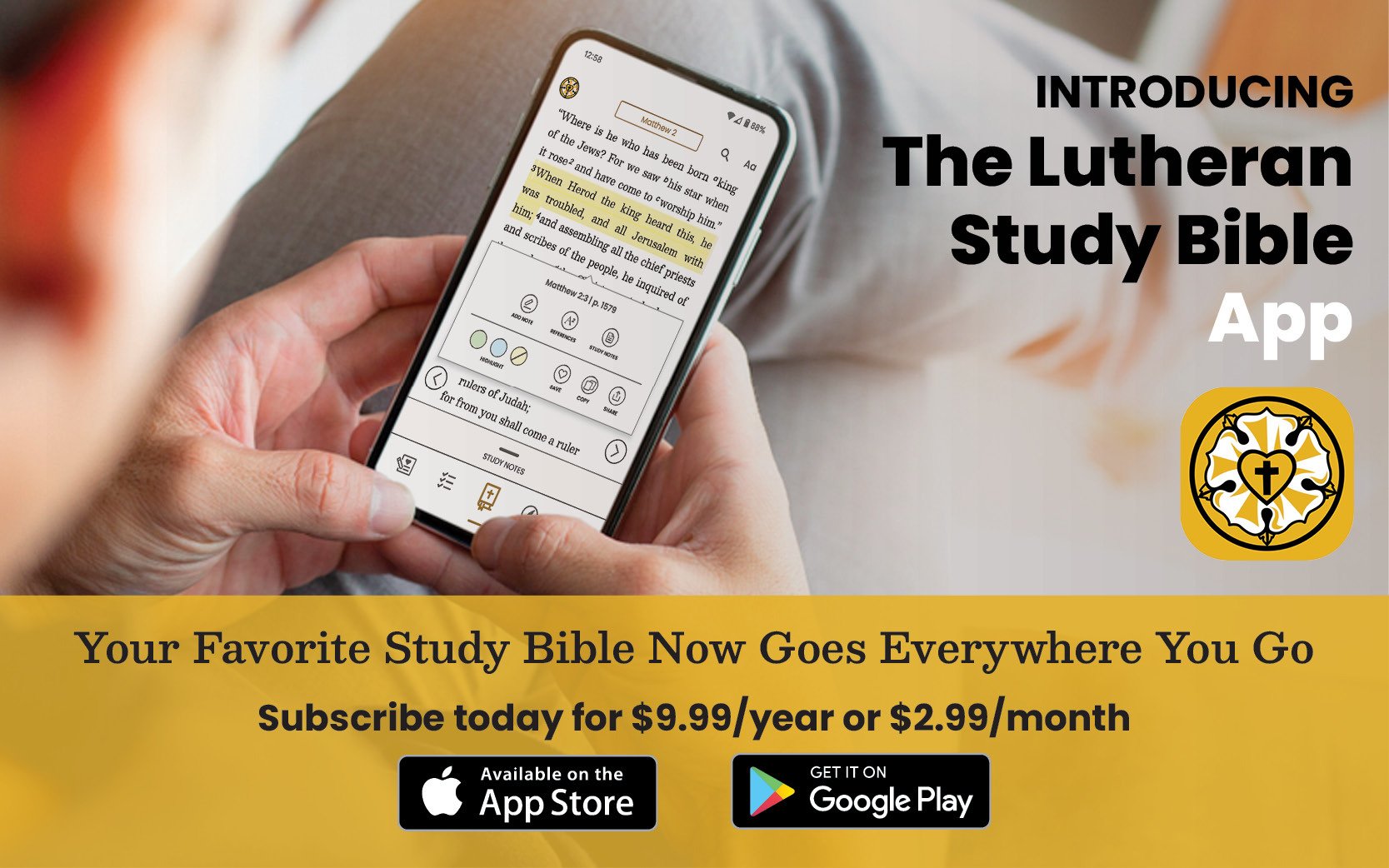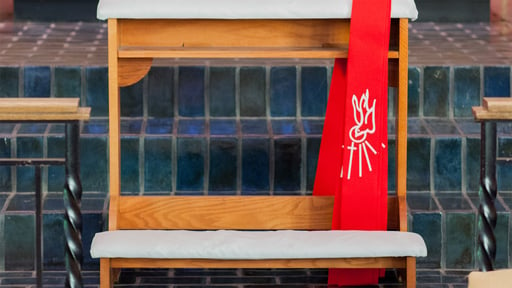I am weary, but God never tires.
In March, our congregation reached the one-year anniversary of making ministry changes in light of COVID-19. Recently, we have relaxed some of these changes after more than ten months of online worship, Bible study, and devotions. Our school was online-only for quite a while. All of this has been in addition to social distancing, masks, and damage to the economy. Even as we move close to “normal,” there is palpable, shared exhaustion. It is physical, emotional, psychological, and spiritual.
Study
We recognize that even at our best, we are not able to choose Jesus Christ or maintain our faith in Him. We cannot resist the misery of the world, the temptations of the devil, and our sinful nature. What a comfort to know that God is present with us always, bringing His love, power, and forgiveness in Christ, even as we are weary. One biblical example of this presence is the Bread of the Presence, also known as the Show Bread.
“You shall take fine flour and bake twelve loaves from it; two tenths of an ephah shall be in each loaf. And you shall set them in two piles, six in a pile, on the table of pure gold before the Lord. And you shall put pure frankincense on each pile, that it may go with the bread as a memorial portion as a food offering to the Lord. Every Sabbath day Aaron shall arrange it before the Lord regularly; it is from the people of Israel as a covenant forever. And it shall be for Aaron and his sons, and they shall eat it in a holy place, since it is for him a most holy portion out of the Lord's food offerings, a perpetual due” (Leviticus 24:5-9).
Following four hundred and fifty years of slavery under the Egyptians, God broke the will of Pharaoh. Although it took repeated plagues, the Lord vanquished the Egyptian king with the killing of the firstborn son in each household. God protected the Hebrews with the Passover, preserving every household bearing the blood of the lamb. The Lord continued His faithfulness: opening the Red Sea, drowning the Egyptian pursuers, providing food and water in the desert, giving the Ten Commandments, and bringing the people to the Promised Land. Yet they still did not trust in the Lord’s faithfulness and constancy.
While the people gathered around Mount Sinai, the Lord gave Moses instructions for worship. This included the materials and design for the tent, or tabernacle, similar to our sanctuary today; methods for properly sacrificing animals and offering the products of the earth. As noted above, the Lord also gave instructions for presenting the Bread of the Presence. These twelve loaves of bread were to be arranged on a gold-plated table in the Holy Place inside the tabernacle. Although a sacrifice to God, the Bread of the Presence was a reminder of the Lord’s faithful provision for the people. Just like the bread that was to be ever-present before the Lord, He was always there with the people. God also gave the Hebrews manna in the desert faithfully.
There are a number of important New Testament connections. Jesus fed five thousand men and their families by multiplying five loaves of bread and two fish. Interestingly, twelve baskets were left over, the same number of loaves on the golden table of the Bread of the Presence. On the next day, the people sought after Jesus looking for the same bread he gave to the five thousand. Jesus calls Himself the Bread of Life, which received, they would never hunger again.
Taken altogether, the lesson is God’s constancy in the face of our unfaithfulness and weariness. Note that God provided all in the Bread of the Presence. He gave the flour needed for the dough. He gave the people the priests and the tabernacle to present it. He fed the priests with the leftover bread, and by this worship nourished the people spiritually. God does the same for us. He created each of us and, as we read in the Small Catechism, provides all that we need for this body and life. Most importantly, He provides Himself in the blood and body of Holy Communion. Even as we are exhausted in life, weak in faith, and even neglectful of the Lord’s Word and Sacraments, He is constant.
Law and Gospel
Just like the Hebrews of the Old Testament, we are apt to distrust the Lord and His faithfulness. Take inventory of your life. Has the Lord ever failed you? Whether in times of ease or trouble, He has been constant, just like He promises. Secondly, we take credit and ownership for what the Lord provides. I deserve nothing. Yet He gives. All creation belongs to God. We own nothing.
Despite our sins of distrust and pride, God never fails. Most importantly, He provides for our spiritual needs through His Son, Jesus Christ, and the work of the Holy Spirit in Word and Sacrament.
Tips for Teaching
1. Invite students to talk about their experience with COVID-19, especially its capacity to tire us. Are they weary as a result of COVID-19? If so, how? Do they know of others who are so? Help them to recognize the Lord’s presence and care through it all.
2. Take students into the sanctuary. Show them where the communion ware is placed during worship. Where does the pastor consecrate the bread? Help students to note how these locations are similar or different to how the Bread of the Presence is handled in the reading for today.
Prepare elementary students for confirmation by having a biblical foundation.






.jpg?width=50&height=50&name=IMG_20220621_160541_456%20(1).jpg)






